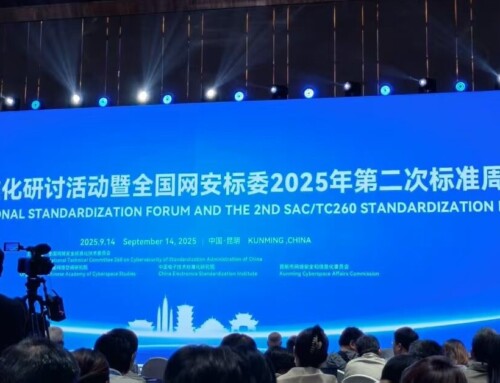On August 25, 2025, the Opinions on Promoting Green and Low-carbon Transition and Strengthening the Development of the National Carbon Market (hereinafter referred to as the “Opinions”) was jointly issued by the Communist Party of China Central Committee’s General Office and the State Council General Office in China. The Opinions provide a comprehensive strategic plan for the development of China’s National Carbon Emissions Trading Market (hereinafter referred to as the “national carbon market”) and the National Voluntary Greenhouse Gas Emissions Reduction Trading Market (hereinafter referred to as the “voluntary Greenhouse Gas market”) in the coming period. It aims to establish a more effective, dynamic, and internationally influential carbon market system, offering solid support for steadily and prudently advancing carbon peak and carbon neutrality goals.
The core objectives are clearly outlined in the Opinions:
- By 2027, the national carbon market will essentially cover all major emitting industries in the industrial sector, while the voluntary carbon market will achieve full coverage across key sectors.
- By 2030, the national carbon market is expected to mature into a fully developed market based on total quota control with a mix of free and paid allowance, alongside a credible voluntary market with unified methodologies and international recognition. Moreover, a carbon pricing mechanism with significant emission reductions, a robust regulatory framework and rational price levels will be established.
To achieve the objectives, the Opinions set out key measures for following efforts. Regarding the national carbon market, it calls for an orderly expansion of coverage to include more industries and greenhouse gases based on sectoral development and decarbonization contributions. Moreover, the policy also emphasizes improved carbon emissions quota management, shifting from intensity-based to total quota control—prioritizing sectors with stable emissions by 2027—while steadily raising the share of paid allocation. For developing the voluntary Greenhouse Gas market, key focuses include accelerating market development by establishing a scientifically sound methodology system—prioritizing sectors with significant social and ecological benefits—and strengthening full-chain project management to ensure integrity and transparency. Additionally, it promotes the application of China Certified Emission Reductions (CCERs), encouraging government agencies, state-owned enterprises, companies, and social organizations to use CCERs for carbon offsetting in activities such as carbon neutrality efforts and green low-carbon practices.
Furthermore, boosting carbon market activity is included in the measures. First, diversify financial products by introducing carbon-linked services like pledge and repurchase agreements to help firms manage carbon assets and improve pricing mechanisms. Second, broaden participation by allowing financial institutions and, in time, non-compliance entities and individuals to trade. Third, strengthen oversight through standardized policy communication, price monitoring, and strict enforcement against market abuse, while enhancing supervision of carbon finance to prevent systemic risks. Additionally, according to the Opinions, a systematic framework to strengthen carbon market capacity will put in place, focusing on the following key areas: modernizing management and digital infrastructure to enhance operational efficiency and data security; reinforcing emissions measurement, reporting, and verification (MRV) through standardized protocols and automated monitoring; implementing end-to-end data supervision using advanced technologies like big data, blockchain, and IoT to curb fraud; strengthening oversight of technical service providers via certification and compliance mechanisms; and improving transparency through expanded information disclosure and credit-based supervision.
Three supporting measures are also put forward to ensure the effective development of the national carbon market: strengthening organizational structures with national coordination to clarify local responsibilities and enhance inter-ministerial collaboration; improving the legal and policy framework by advancing carbon market legislation, combating violations, facilitating linkages with green power and certificate mechanisms, and optimizing trading and settlement systems; and deepening international cooperation through active participation in global carbon market governance, promoting mutual standard recognition, and sharing operational experience.
According to the Ministry of Ecology and Environment (MEE), the development of the carbon market adheres to the fundamental goal of reducing emissions, innovations in market mechanisms are driving the development of low-carbon technologies and the implementation of climate projects, and carbon market development emphasizes coordinated planning.
To conclude, China’s carbon initiatives signal its commitment to systemic decarbonization and aligns with global carbon pricing trends. For foreign stakeholders, Carbon market expansion and financial innovation create new avenues for carbon asset development and voluntary emission reduction recognition, aiding global ESG compliance. Meanwhile, covered sectors will face stricter carbon accounting rules and higher compliance costs. Companies must strengthen carbon management capabilities to navigate China’s evolving carbon market and figure out the difference from China and EU on carbon emission calculation. SESEC will keep following its latest development and timely update.
Original source: https://www.gov.cn/zhengce/202508/content_7037717.htm
https://www.miit.gov.cn/zwgk/zcjd/art/2025/art_a8e32360015b42dc9b7ac3d931311e94.html
https://www.mee.gov.cn/zcwj/zcjd/202508/t20250826_1126175.shtml
https://www.mee.gov.cn/zcwj/zcjd/202508/t20250826_1126176.shtml
https://www.mee.gov.cn/zcwj/zcjd/202508/t20250827_1126209.shtml




